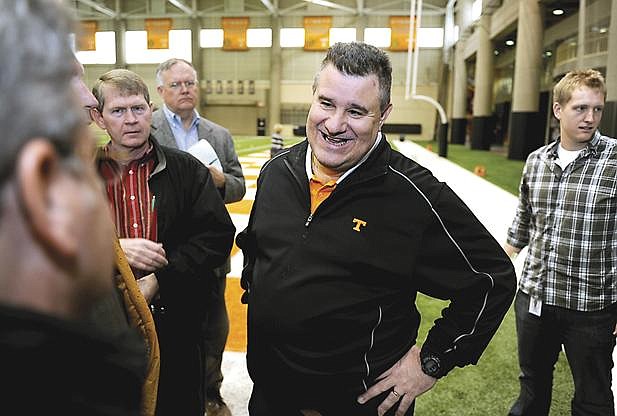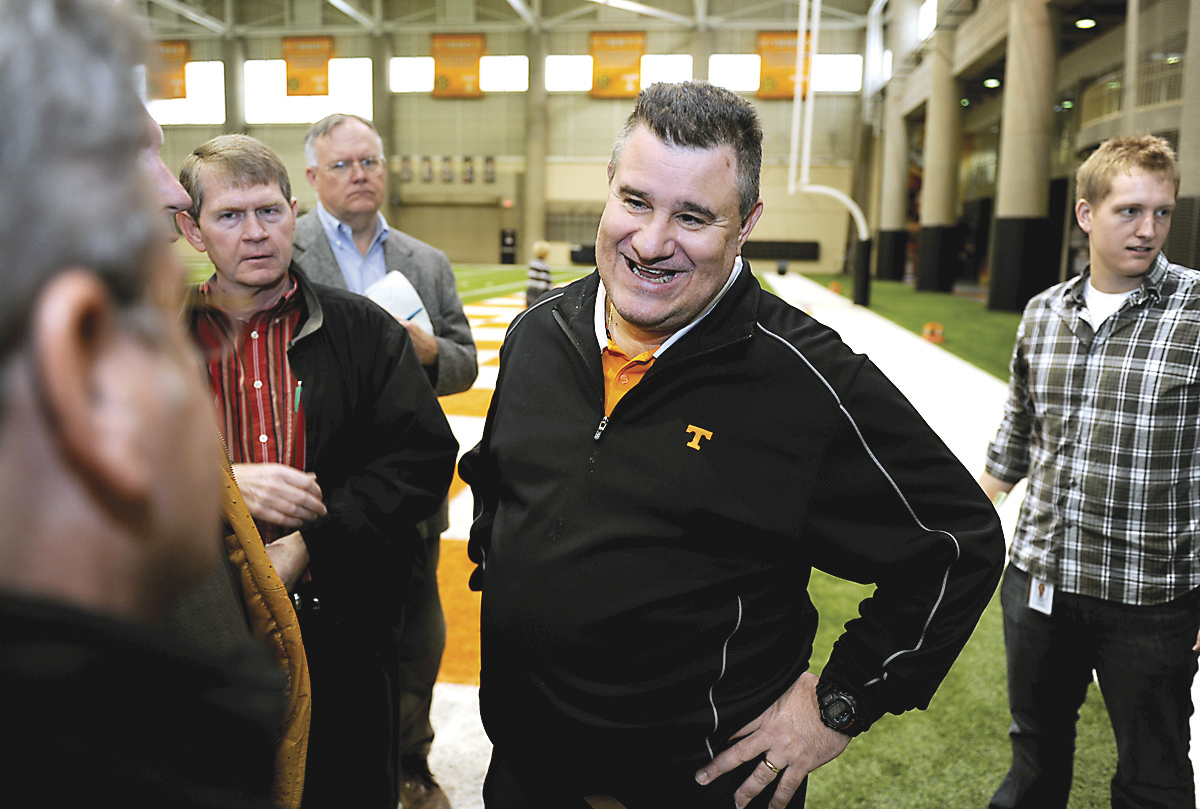Vols' Sal Sunseri has 'D' goals beyond wins
Friday, January 1, 1904
KNOXVILLE - Like any defensive coordinator, Tennessee's Sal Sunseri has numbers and goals he uses in breaking down how his side performed in a game.
He demands production, but the measurements and criteria for those requirements are for his viewing alone.
"We absolutely have goals," Sunseri said after practice Wednesday morning. "Those are my goals. I don't really put them out there.
"I think we've got to be better achieving them, and we have to handle them."
Under the first-year coordinator, the defensive Volunteers are aiming to have a greater impact on games. More sacks, more pressure on the quarterback and more turnovers are the starting point. For Sunseri, it's a daily and weekly focus on the fundamentals that generates any stat he could use to value a performance.
Statistics, goals and numbers aside, the most important thing for every coach and player is winning. What those numerical items can provide is evidence why a team won or lost. Most coaching staffs probably use a system of indicators, but those values can explain only so much about a game.
Tennessee safeties coach Josh Conklin, a former defensive coordinator, said he used numbers to help grade his defenses at The Citadel.
"I think you can look at that, and obviously the statistics don't lie at the end of the day," he said. "I think sometimes you can think they're not necessarily saying what really happened, but the bottom line is what we talk about is we talk about the wins. If we win, it makes it a lot easier to make the improvements and make the adjustments the next week.
"I think everybody looks at the numbers. That's why you keep the goals, that's why you keep the statistics [and] you look at the numbers and you say, 'Here's the areas we've to improve upon, and here's the areas we did very well.' That's what it says."
Tennessee's defensive numbers in the season-opening win against North Carolina State were good and bad, as they could be all season with the Vols' focus on aggressive play. They intercepted four passes, recorded a safety, hit quarterback Mike Glennon a dozen times and allowed just 21 points.
The Vols also allowed six plays of 15 or more yards, let a pocket passer run for three first downs, mixed some signals and gave up 407 yards.
Sunseri was proud of how his defense settled into the game, and he hopes the Vols continue to settle into his multiple scheme.
"They had better communication," he said. "Every time you come off the field, if you can see, none of the defensive coaches are watching the game. We're getting with the players, telling them what the next play's going to be.
"You're coaching the players to expect what's going to happen to them."
Ask the Vols' fiery, intense defensive coordinator about numbers, and he'll likely insist that it's the work during the week that creates the success. Sunseri and his staff demand intensity and perfect technique in every drill. Tennessee's players complete a turnover circuit every week -- drills focusing on stripping a ball carrier, picking off passes and hitting the quarterback's arm -- to enhance the possibility of turnovers in the game.
It paid off in game one, when Tennessee's practice emphasis led to a productive night.
"You don't even have to blitz," said Sunseri, who dialed up a high number and wide variety of blitzes against N.C. State. "A lot of things that came over, we were just playing base defense. The guys are playing good technique and good fundamentals and reading their keys, and then all of a sudden the ball's up in the air and you go get it.
"They did just what they were supposed to do: They had the proper technique and they made plays."
However the Vols measured up to Sunseri's mystery goals, the players know their coaches will want more.
"We're still working on everything every single day," Sunseri said. "It's the standard of the system that you have to keep working on. If you looked at that football game, there were some turnovers we created, but there's too many mental errors.
"We're not up to the standard we want to be, but it was the first game, so I'm happy."

